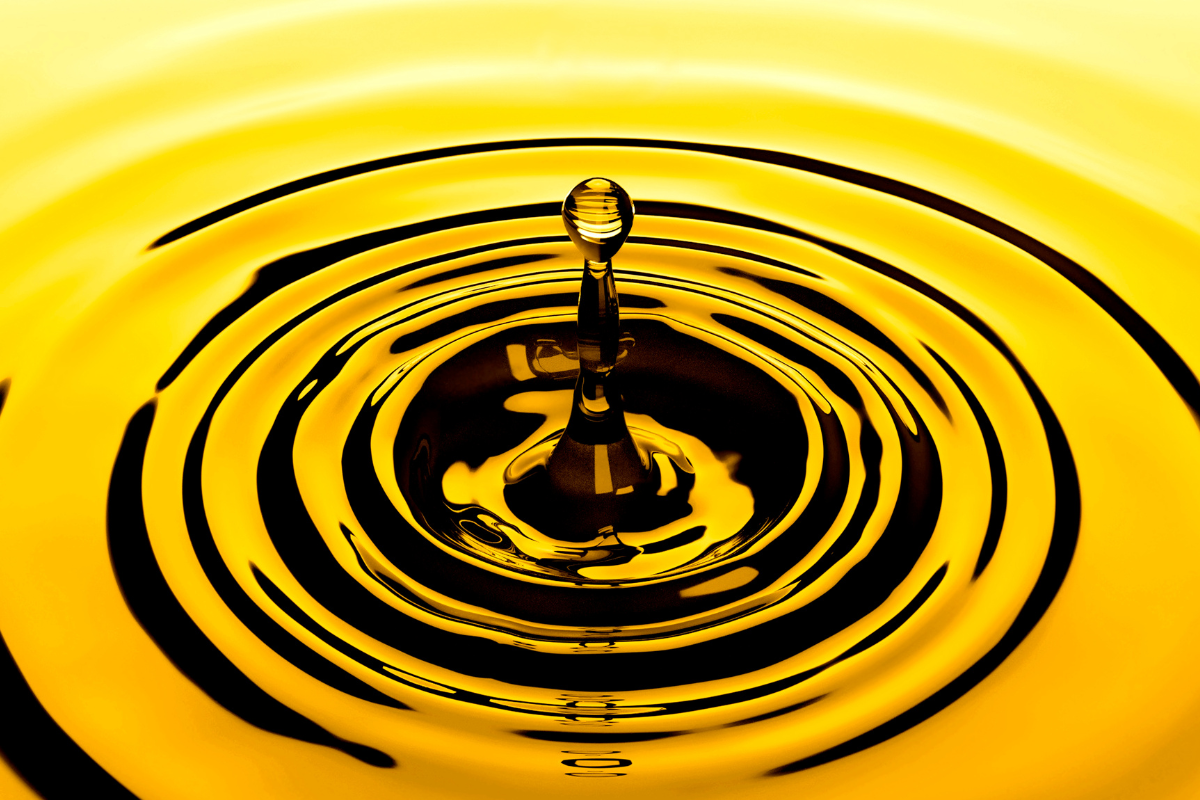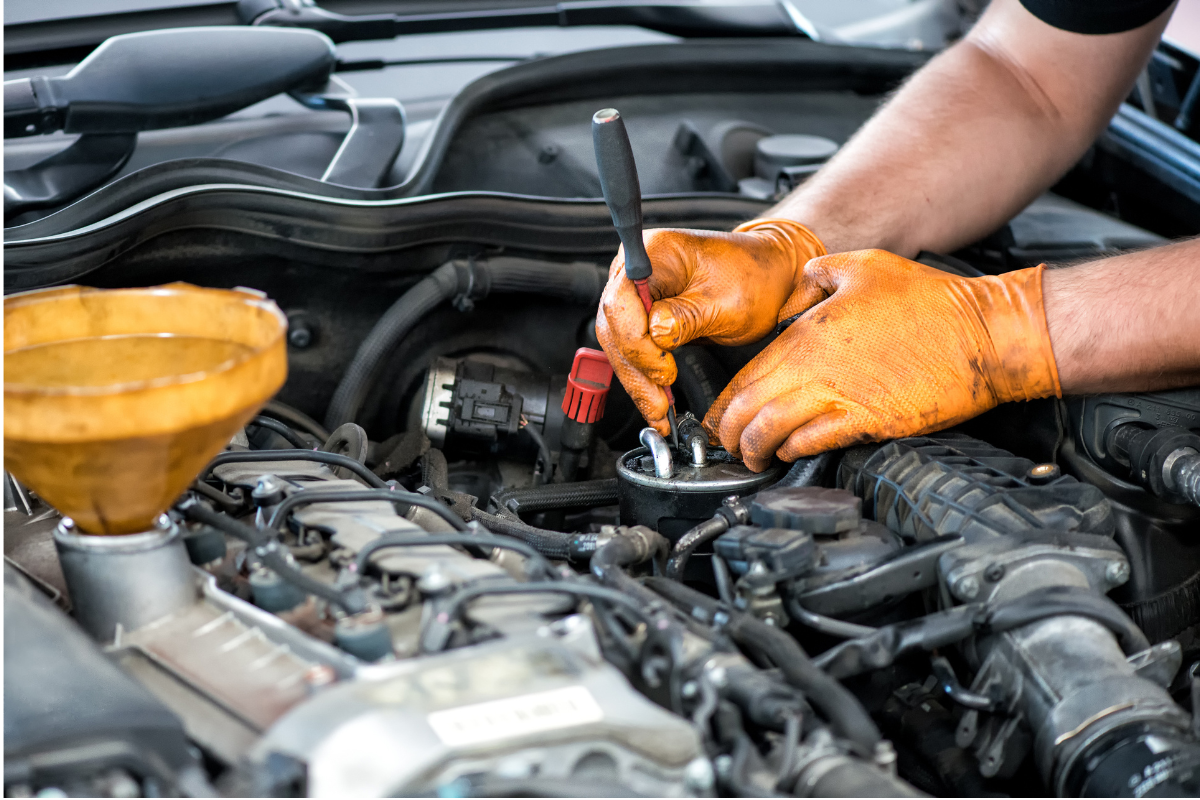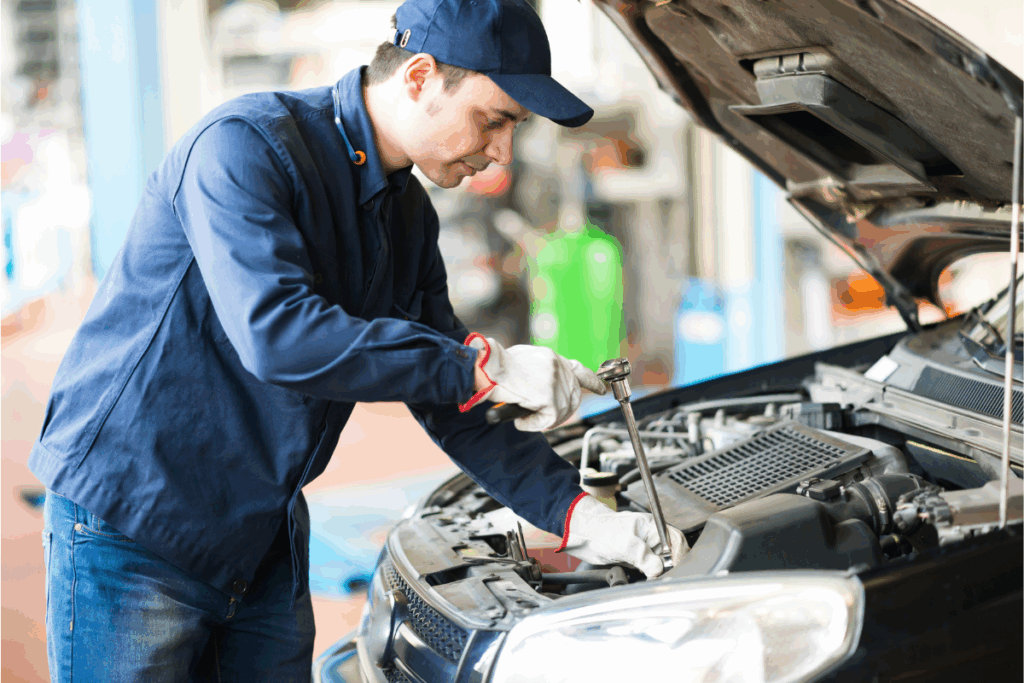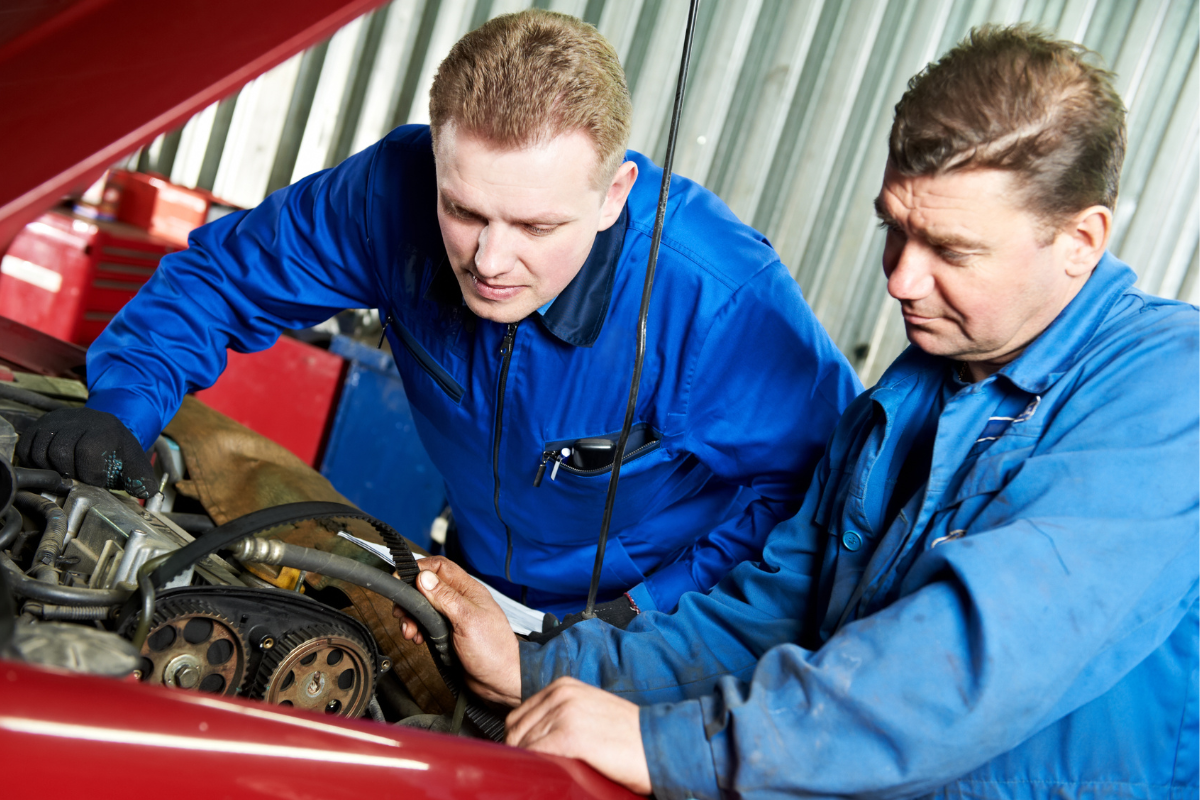
Water and fuel don’t mix—at least, they shouldn’t. But sometimes, whether due to bad fuel, condensation, or a small leak, water can find its way into your fuel tank. The results? Diesel engine problems, performance issues, and potential long-term damage.
If you’ve ever wondered what happens when water mixes with fuel and how to fix it, this article will break it down for you.
How Does Water Get Into Your Fuel?

Water can enter your fuel tank in several ways, and while a few drops won’t immediately destroy your engine, too much can cause serious trouble. Here’s how it typically happens:
- Bad Fuel from the Pump: Sometimes, fuel from a gas station may already be contaminated with water due to improper storage or old underground tanks.
- Condensation in the Tank: If you live in an area with fluctuating temperatures, condensation can form inside your fuel tank, especially if it’s not full.
- Damaged Fuel Cap or Tank Leak: A loose or damaged fuel cap or a crack in the fuel system can let in moisture, especially after heavy rain or washing your car.
How to Tell if There's Water in Your Fuel
Not sure if water has made its way into your fuel? Catching the problem early can save your engine from serious damage. One of the first signs is rough starts or difficulty turning the engine over, especially on cold mornings.
Water disrupts combustion, so your vehicle may hesitate or take longer than usual to start. Modern cars may also alert you with a warning light if sensors detect issues with fuel delivery or engine performance.
You might notice gray or white smoke coming from the exhaust, caused by water burning off in the combustion chamber. At the same time, your engine could feel sluggish, struggling to accelerate or losing power under load.
Because the fuel system isn’t operating efficiently, your vehicle may burn more fuel than usual, leading to higher consumption. Some drivers also notice unusual engine sounds, like sputtering or knocking, particularly when accelerating.
Recognizing these warning signs early is critical. Acting quickly can prevent minor contamination from turning into costly repairs and keep your engine running smoothly.
What Happens When Water is in Your Fuel?
Think of your engine as a finely tuned machine built to run on fuel alone. Add water into the mix, and things start to go wrong — fast.
Because water doesn’t burn, it interrupts combustion, starves your engine of power, and quietly wears down critical parts.
At first, you might notice rough starts or sluggish acceleration, but left unchecked, water can cause serious damage that leaves you stranded or facing costly repairs.
1. Engine Misfires and Poor Performance
Water doesn’t combust like gasoline or diesel. Instead, it interrupts the combustion process, causing engine misfires, hesitation, and loss of power. You may feel your car struggling to accelerate or sputtering when idling.
2. Hard Starting or No Start at All
If enough water is in your fuel, it can make starting your engine difficult. Water is heavier than gasoline, so it tends to settle at the bottom of the tank—right where your fuel pump pulls from. If water gets sucked into the system, your engine may refuse to start.
3. Rust and Corrosion in the Fuel System
Water and metal don’t mix well, and if water sits in your fuel system for too long, it can lead to rust and corrosion. This can damage fuel injectors, fuel lines, and even the fuel tank, leading to expensive repairs.
4. Clogged Fuel Filters
Fuel filters are designed to catch impurities, but they can only handle so much. Water contamination can overwhelm the filter, causing it to clog faster and restrict fuel flow, leading to stalling and poor engine performance.
5. Fuel Injector Damage
Modern fuel injectors are highly sensitive and require clean fuel to function properly. If water enters the injectors, it can cause erratic fuel spray patterns, poor combustion, and long-term damage.
How to Fix Water in Your Fuel

Fuel additives like Heet or ISO-HEET are designed to absorb water in gasoline. These work well for small amounts of water and prevent freezing in colder temperatures.
For larger amounts of water contamination, the best solution is to drain and replace the fuel. This may require removing the fuel tank or using a fuel siphon.
If water has passed through your fuel system, your fuel filter may be clogged. Replacing it ensures clean fuel flow. If water keeps getting into your fuel, inspect your fuel cap, fuel lines, and tank for cracks or leaks.
How to Prevent Water in Your Fuel
The best fix is prevention. A few simple habits can save you from expensive repairs down the road:
- Keep Your Tank Full: Less empty space means less room for condensation to form inside the tank.
- Choose Reliable Gas Stations: Stick to busy, well-maintained stations. Old underground tanks or poorly managed fuel supplies are a common source of contaminated fuel.
- Check Your Fuel Cap: Make sure it seals tightly. A loose or damaged cap is an open invitation for rainwater or car wash runoff.
- Use a Fuel Stabilizer for Long-Term Storage: If your vehicle or equipment will sit for weeks or months, a stabilizer can stop water buildup and keep fuel fresh.
Regular routine maintenance helps prevent these issues.
Final Thoughts

Even a small amount of water can cause misfires, filter clogs, and costly engine damage. The sooner you act, the easier — and cheaper — it is to fix.
Act now: schedule a fuel system inspection with A1 Diesel today. Our experts will help remove contaminants, prevent future problems, and keep your diesel engine running at peak performance.
Don’t wait, protect your investment before water causes serious damage.
Frequently Asked Questions

Can a diesel engine run on fuel mixed with water?
A diesel engine may start and run briefly on water-contaminated fuel, but it won’t run properly. Water disrupts combustion, reduces power, and can cause the engine to misfire or stall. Long-term exposure can severely damage fuel system components.
Can water in diesel fuel damage injectors?
Yes. Diesel injectors are highly sensitive components. Even small amounts of water can corrode metal parts, reduce lubrication, and cause injector failure, which is one of the costliest fuel system repairs.
Injector replacement may be necessary if damage occurs.
Can additives fix water-contaminated diesel fuel?
Some additives can help disperse small amounts of water, but they are not a cure for major contamination. If significant water is present, draining the tank and replacing filters is often necessary to protect your engine.
Why does water sink to the bottom of the fuel tank?
Water is denser than gasoline or diesel, so it naturally settles at the bottom of the tank. This is exactly where the fuel pump draws from, which is why even a small amount of water can cause engine issues.
What are the long-term effects of ignoring water in fuel?
Ignoring water contamination can lead to reduced fuel economy, higher emissions, premature wear on injectors and pumps, and eventually tank corrosion. Repairs can cost thousands if left untreated.
